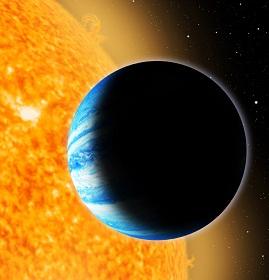Using AI to control energy for indoor agriculture
30 September 2024
Published online 13 May 2013

Qatar's first professional astronomer, Khaled Al Subai, has been awarded a US$5 million grant from the Qatar National Research Fund (QNRF) to expand a survey which aims to discover new planets.
Qatar's Exoplanet Survey uses the transit method, through which the existence and size of a planet can be observed by measuring a reduction in the brightness of its parent star as a planet transits across. The level by which the star's brightness dims depends on the relative size of the star and the planet.
"Through this research we are contributing to the international effort to discover new planets," says Al Subai, the director of research coordination and compliance at Qatar Foundation's Research Division. "We are expecting to discover around 50 planets in the next five to six years."
In order to expand the project and increase the likelihood of finding planets, Al Subai plans to establish observation stations in the Canary Islands, New Mexico and Iran. Work on these outposts will start at the end of the year.
"Each observing station will have eight telescopes, and each telescope will have an aperture diameter of 20cm, allowing us to cover big parts of the night sky," Al Subai says.
"These places have been chosen because of their exceptional clearance and transparency of the sky, and the geographical distribution should give us the highest coverage of the night sky," he added.
Since 2010, Al Subai's team discovered three Jupiter-like planets, Qatar-1b, Qatar-2b and Qatar-2c.
I could have stopped after these discoveries, he said, "but I want to inspire the young people of Qatar to take up this science."
To this end, the grant will also fund two Qatari post-graduates to complete PhDs through Al Subai's programme.
"It isn't easy to convince people or the government to finance something like this because society doesn't support astronomy. None of the Arab countries are working on a project like this and Qatar should be proud of its investment."
doi:10.1038/nmiddleeast.2013.71
Stay connected: